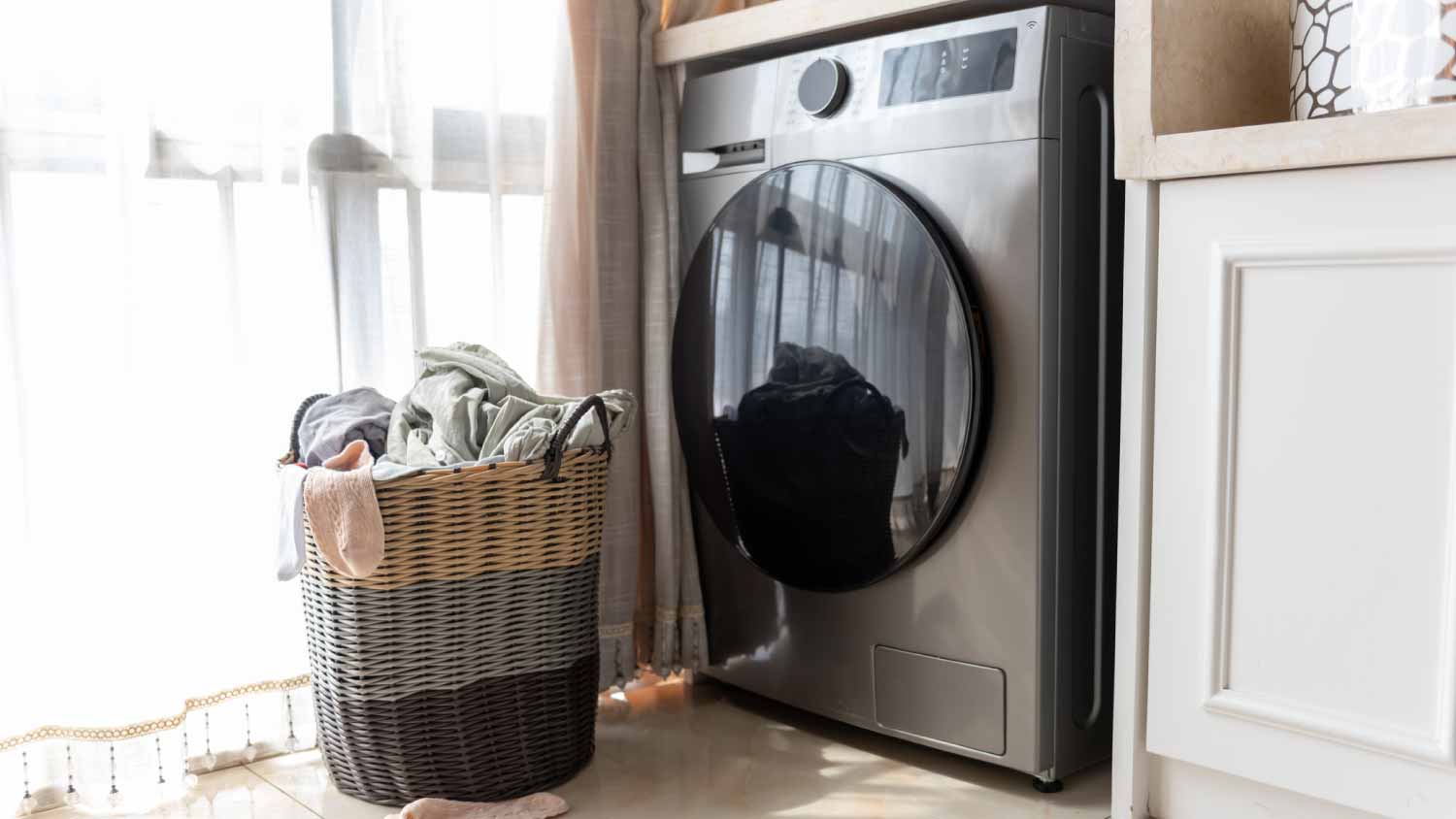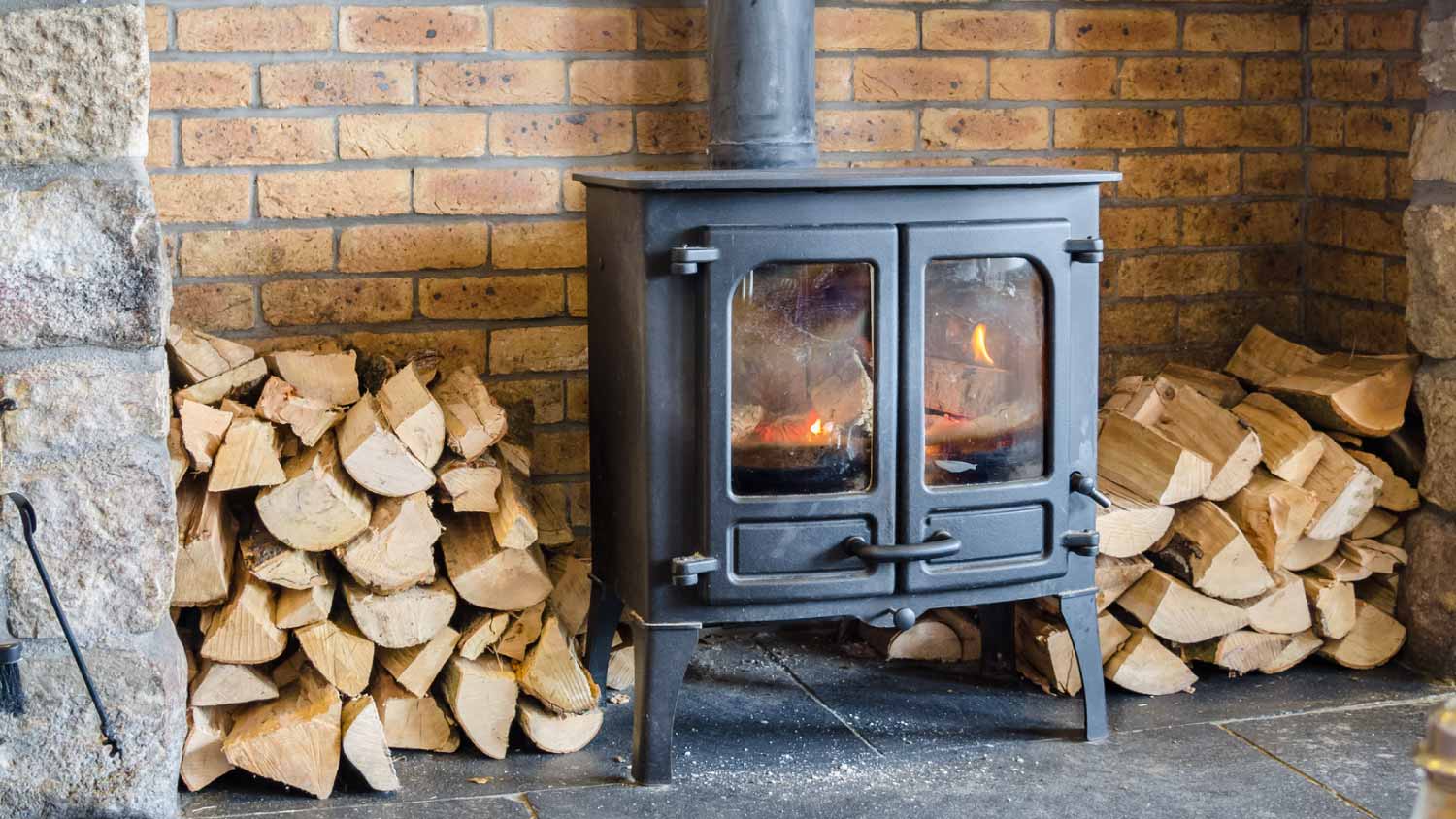Should I Buy a New or Used Washing Machine?
Savvy homeowners can save money in many ways, but should a used vs. a new washing machine be one of them?


Pros and Cons of New vs. Used Washing Machines
You really can’t beat the fresh scent of a load of just-laundered towels. And there’s nothing quite like the feeling of sinking luxuriously into crisp, cool, clean sheets at the end of a hard day. And the source of these little life pleasures? Why, the humble family washing machine, of course.
But when it comes time to retire and replace your old faithful appliances, you can find yourself staring down a hefty bill. Some newer front-loading washing machine models can cost $1,000 or more. No wonder, then, that many homeowners opt for used models instead. But what are the pros and cons of new vs. used washing machines?
New Machines
Pros
Energy efficiency: Today’s appliances are more energy-efficient than ever before, and new washing machine models are no exception. Depending on the appliance’s Energy Star rating, a new machine can not only reduce your home’s carbon footprint but also save you hundreds and even thousands of dollars in energy costs over the machine’s lifespan.
Warranties: If you buy a new appliance, odds are it will include some kind of manufacturer’s warranty. That’s protection that used machines don’t offer, and it can save you big bucks if your shiny new washer breaks down.
Form and function: Today’s washing machines have more function and design options than ever before. From your choice of colors and finishes to special features, such as stackable and compact units, you can find new models to meet almost any need or preference—although we’re still waiting for a machine that folds the laundry, too.
Cons
Cost: In today’s market, it can feel like prices are rising faster than your heart rate after a case of Red Bull and an espresso chaser. New washing machine prices are no exception, averaging anywhere from $500 to more than $1,000.
Lifespan: It’s not your imagination: today’s new models of appliances generally don’t last as long as older machines—around five years or so. And it stands to reason. There’s more opportunity for systems to break down with all their sophisticated computerized systems and fancy-schmancy features. New models generally last only about half as long as older ones, meaning that you’re not only going to be shelling out more money for a new machine, but you’ll be doing it more often.
Used Machines
Pros
Cost: Shopping secondhand for a washing machine can certainly save your family a pretty penny. You can generally locate a refurbished model or a used machine in good condition for less than half what you might pay for a standard new model appliance.
Life expectancy: Many older appliances are workhorses designed for true durability. That means they’re generally made from higher quality components than are today’s newer models. So, where new models usually last only a few years, older models can keep on ticking for a decade or longer. The important thing is to do your research and make sure you’re purchasing from a dealer or refurbisher with a solid reputation for selling reliable used appliances.
Cons
Potential energy hogs: If you’re looking to nurture both the environment and your energy bills, then a used machine may not be for you. Depending on the age of the washer you choose, it may not have been designed according to EPA Energy Star standards. That means it will use more energy than its newer counterparts, and whatever money you might have saved on the front-end when you bought the machine may be lost to energy costs over the appliance’s lifespan. Silver lining, meet cloud. Cloud, meet silver lining.
No warranty: If you’re buying a used machine, you probably won’t have the benefit of a manufacturer’s warranty. If something goes wrong, you’re stuck with the problem—and the bill. The cost of repairing a used machine might exceed the cost of replacing it, meaning you haven’t done yourself any favors in shopping secondhand.
The Takeaway
Buying household appliances may not exactly be the most fun or indulgent way to spend a weekly paycheck, but it’s a necessity of this thing called adulting. Determining whether a new or used washing machine is best for you may be the first and most important decision you make along the way. As with most things in life, there are pros and cons on both sides. But whether your focus is on cost, energy efficiency, or durability, doing your homework ahead of time will help you find the machine that’s right for you.



.jpg?impolicy=leadImage)

- Appliance Repair Companies
- Washing Machine Repair
- Dryer Repair
- Refrigerator Repair
- Dishwasher Repair
- Oven Repair
- Wood & Pellet Stove Repair
- Freezer Repair Services
- Wood Stove Services
- Gas Stove Repair
- Emergency Appliance Repair Companies
- Ice Maker Repair
- Gas Appliance Repair
- GE Appliance Repair
- GE Refrigerator Repair
- GE Dryer Repair
- GE Dishwasher Repair
- GE Washing Machine Repair
- Samsung Appliance Repair
- Samsung Refrigerator Repair
- Samsung Dryer Repair
- Samsung Washer Repair
- Samsung Dishwasher Repair
- Samsung Oven Repair
- Whirlpool Repair
- Whirlpool Refrigerator Repair
- Whirlpool Washer Repair
- Whirlpool Dryer Repair
- Whirlpool Oven Repair
- Maytag Appliance Repair
- Maytag Refrigerator Repair
- Maytag Washer Repair
- Maytag Dryer Repair
- Maytag Dishwasher Repair
- Kitchenaid Appliance Repair
- Kitchenaid Oven Repair
- Kitchenaid Refrigerator Repair
- Kenmore Appliance Repair
- Kenmore Dishwasher Repair
- Kenmore Washer Repair
- Kenmore Dryer Repair
- LG Refrigerator Repair
- Bosch Appliance Repair
- Kenmore Refrigerator Repair
- LG Appliance Repair Services
- GE Microwave Repair
- Electrolux Appliance Repair
- Electrolux Washer Repair
- Kitchenaid Dishwasher Repair Services
- Wood Stove Inspection
- Dishwasher Installation
- Trash Compactor Repair









